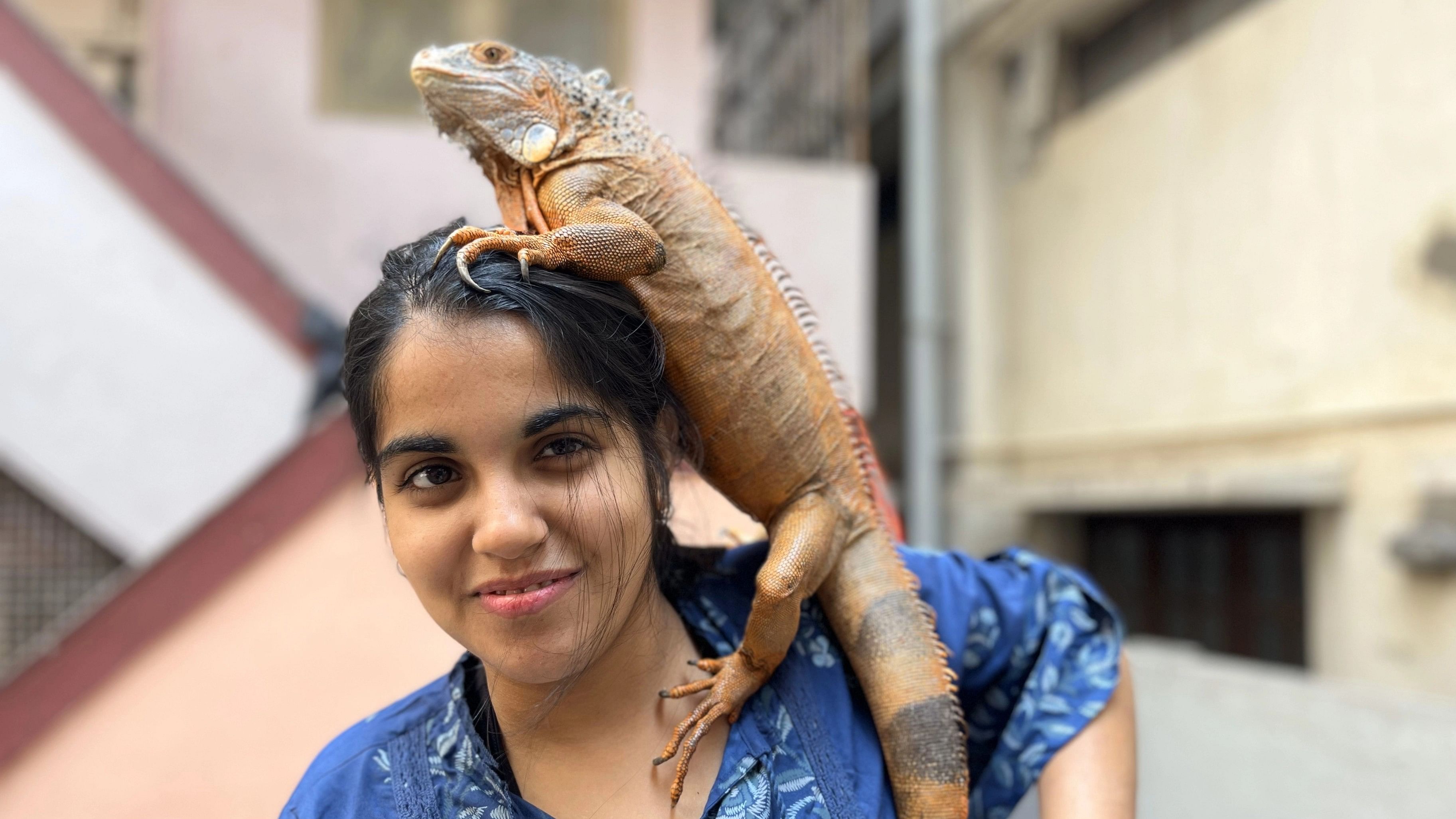
Animal 360, a pioneering pet paradise in Bengaluru's Concrete Jungle, was founded by Akshata Ashok and Rajesh Nataraj.
SPECIAL ARRANGEMENT
Bengaluru: A startup, launched in November, is attempting to create better habitats for animals in Bengaluru. The care they provide extends to all animals, beyond just cats and dogs.
Called Animal 360, it was founded by Akshata Ashok and Rajesh Nataraj. While Akshata has an MSc in Applied Animal Behavior from the University of Edinburgh, Rajesh has been involved in wildlife rehabilitation and animal training in zoos and parks across the country.
“People in the city have birds, snakes and other reptiles as pets too. The professional care available for them is inadequate. We hope to fill that gap,” Akshata says.
She explains that when animals are not in their natural habitat, they demonstrate ‘stereotypical’ behaviour. “Stereotypical behaviour is anything that shows that they are stressed. Excessive pacing or grooming (for instance, birds pulling out their own feathers) are examples of this behaviour,” she shares. In such cases, Akshata and her team will suggest ways to modify their surroundings to reduce stress levels.
Sometimes, animals are in need of ‘enrichment’ — mentally stimulating activities. When Akshata worked at an animal rescue centre in Costa Rica, she helped rehabilitate wild animals. One of them was a jaguar
who was rescued from a local’s home. “The jaguar could not be released into the wild because he had no hunting skills. Without it, he wouldn’t survive. But to ensure he kept at least a little bit of his natural instincts, we would wrap rabbit faeces and place them around his enclosure or make a trail with animal blood. This, we hoped, would give him the feeling of being in the wild,” she recalls.
A majority of zoos are designed unscientifically, Akshata shares. The animal enclosures offer little to no enrichment. They are quite bare. This needs to change so that the animals live a better life, she explains.
In addition to solutions for animal behaviour and prescribing nutritious diet plans, the duo also offers services such as canine hydrotherapy, habitat development (blending science and creativity to design animals’ habitats through landscaping and aquascaping), pet photography and designing of terrariums and terrace gardens.
Another important service is education. They plan to collaborate with MNCs, educational institutions and animal rescue centres to spread awareness by conducting workshops and seminars.
“I think this should be taught in school. It will help build a better future for animals. Children should learn how to care for community animals and what one should do if they see an animal in pain,” she says.